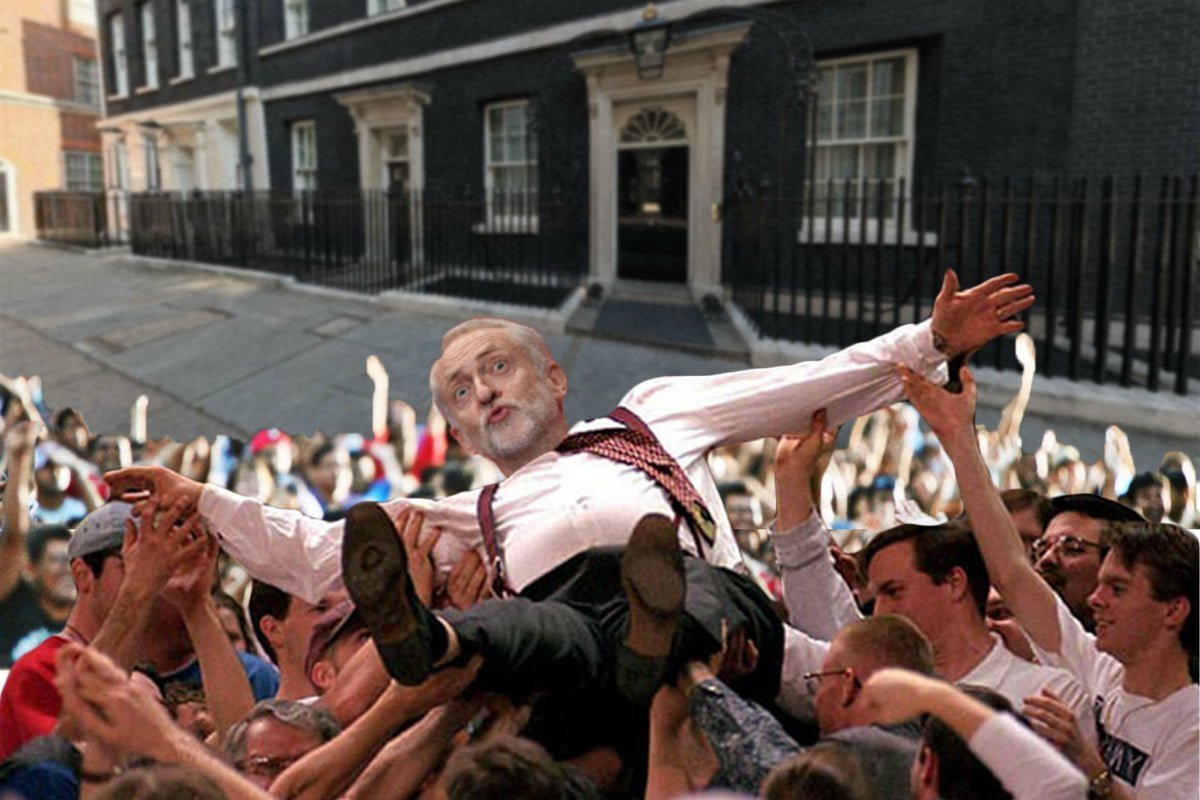In the final part of our analysis of political developments in Britain, we look at the contradictory pressures that a Corbyn government will face. We need a bold socialist alternative.
We publish here an in-depth analysis of the political situation in Britain, which was discussed at the recent conference of Socialist Appeal supporters.
Although originally drafted in December, the processes and contradictions that this document outlines still lie at the heart of British politics.
In this third and final part, we look at the competing class forces that will bear down on a Corbyn government: from the capitalists on one side, and from the working class on the other.
The task of the Marxists is to build up a force capable of offering a revolutionary way forward.
Crisis of reformism
John McDonnell’s ‘tea offensive’ is aimed at convincing big business where their best interests lie – in a Labour government. But this is a pipedream. All attempts to appease big business will end in tears. It is not the government that dictates to the economy, it is the capitalist economy that dictates to government.
Capitalism is in a deep systemic crisis worldwide that cannot be cured by Keynesian meddling. A Keynesian programme, i.e. ‘deficit financing’ to boost demand, will simply not work. Instead it would prepare the ground for an even deeper crisis in the future.
Even if Corbyn could expand the economy, it would only suck in imports and create a balance of payments crisis. This is what happened to the Mitterrand government in France in 1981-2. Hollande too was soon forced to abandon his promise to tax the rich and reverted to orthodox economic policies.
In the same way a Corbyn government will be under intense pressure to capitulate from the very first day. Given the bleak economic situation and the ever-growing demands of working people, it will be buffeted from one side to the other. It will be a government of crisis. And the Blairite Fifth Column will be waiting for an opportunity to stab it in the back. This will give rise to ferment and debate within all sections of the labour movement as to the way forward.
The crisis of capitalism means a crisis of reformism, which are inseparably bound together. The bankers and capitalists will explain that the system cannot afford reforms, only counter-reforms. But the workers will explain that they cannot accept any more austerity.
For the Keynesian reformists, a programme of state borrowing (and spending) will solve the chronic crisis of capitalism. But if it was as easy as that it would have been successfully implemented elsewhere long ago.
Lacking a firm anchor in theory, the reformists have latched onto Keynesian economics, despite the fact that it has been shown to have completely failed. They think they can spend their way out of a crisis.
But Jim Callaghan, the Labour Prime Minister, as far back as 1976 explained this was no longer possible. Deficit financing was leading to an inflationary spiral. Governments were forced to turn to monetarism as a way forward. Of course, this solution of cuts was also a dead end. Neither Keynesianism nor monetarism is a solution for the working class.
At the end of the day, if the government is going to spend, the money has to come from somewhere. The state cannot simply create it out of thin air. It has to come from taxation, either on the working class or the capitalists.
If they tax the capitalists, this will cut into profits and cause a further fall in investment, intensifying the crisis. And if they tax the working class, they cut into consumption and thereby reduce demand even further. Whatever they do will end up cutting the market either by reducing investment or consumer spending.
Such measures are simply tinkering with the capitalist system. However, as explained, the problem of capitalism is not simply demand, as the Keynesians say, but profitable markets, which they fail to address.
Capitalism is not a system based upon production for need, but production for profit. Without profit, the capitalists will not produce or invest. However, to increase profits, this will mean attacking the working class, as profit comes from the unpaid labour of the working class. Thus, either way, the state cuts into the vitals of the capitalist economy.
Blackmail and threats
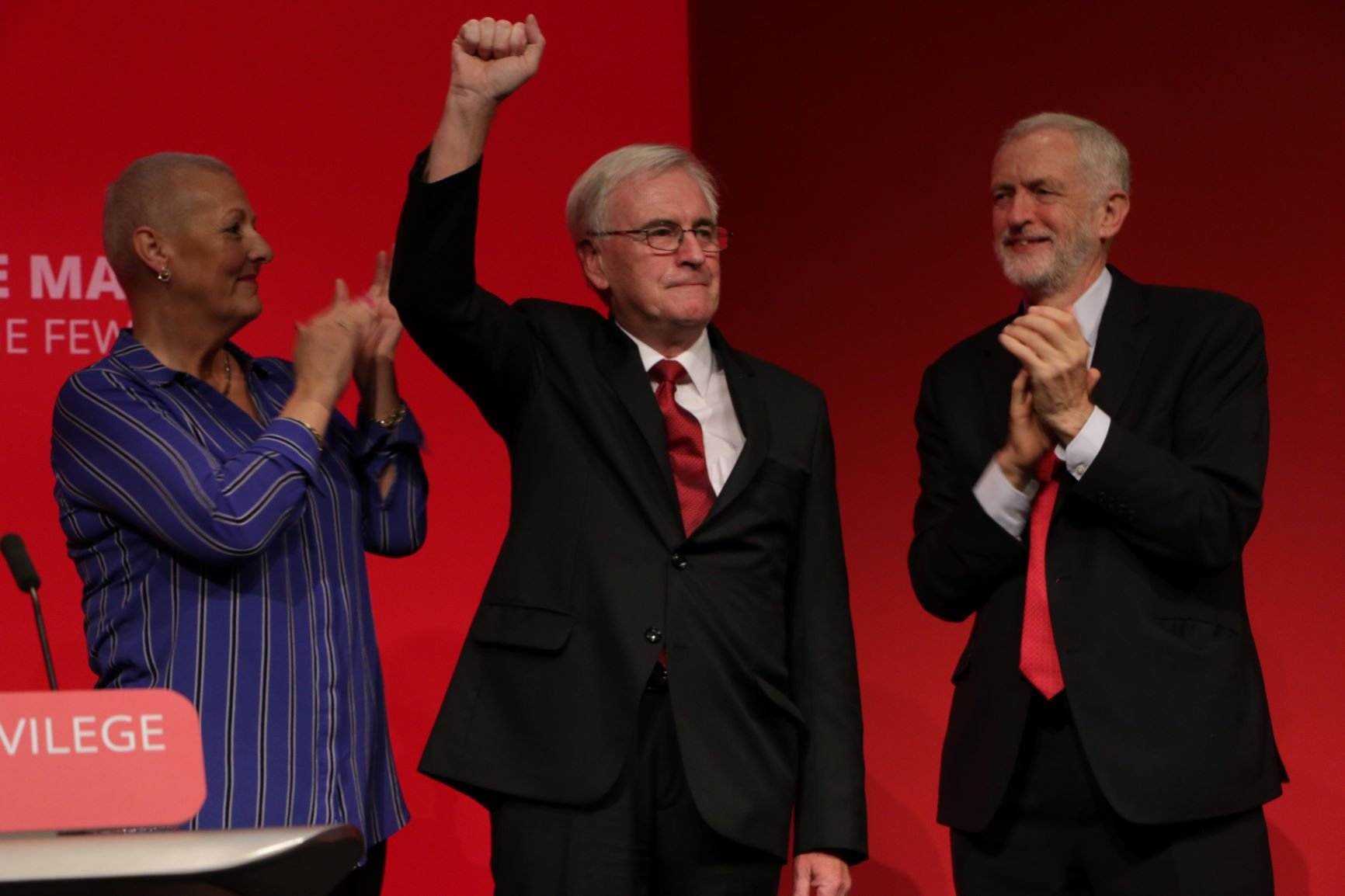 “With Theresa May’s grip on power looking ever more vulnerable, business leaders are starting to realise they need to take the prospect of a ‘hard left’ UK government seriously,” explained the Financial Times. (7/12/17)
“With Theresa May’s grip on power looking ever more vulnerable, business leaders are starting to realise they need to take the prospect of a ‘hard left’ UK government seriously,” explained the Financial Times. (7/12/17)
“Executives are worried about many of the promises in the Labour election manifesto from June, with its multiple nationalisations, a higher minimum wage and hint of a land tax.” The document promised £48bn a year of additional public spending, partly funded by £19bn of extra corporation tax and higher income tax on top earners, an ‘excessive pay levy’ and a new crackdown on tax avoidance, etc.
Nevertheless, the Confederation of British Industry has warned that plans to nationalise the rail, energy and water industries — as well as Royal Mail — would “send investors running for the hills”.
The reason why the ruling class fears a Corbyn government is not so much Corbyn and McDonnell, but the forces that stand behind them. They fear the pressure of the working class on such a government, which could force it to go further than they intend against capitalism.
Richard Angell, head of the Blairite organisation Progress, expresses things more bluntly by warning: “They are growing in confidence and the ideologues run the [Labour] show. They are going to start asking fresh questions, such as, why stop at three big nationalisations?”
More serious was the threat from Morgan Stanley, which predicted in November that a Corbyn government could play havoc with stock markets and the pound, which has fallen more than 10 per cent since the eve of the EU referendum vote.
CME Group, a US financial company, sent a paper to investors warning of a “nightmare scenario for the pound”. During a private equity conference in Amsterdam, meanwhile, Bobby Vedral, a banker partner at Goldman Sachs, said a Corbyn win would make the UK look like ‘Cuba without the sunshine’”, explained the “Financial Times” (11/12/17).
This is a dire warning which expresses the real worries of the ruling class. These worries were then confirmed within days of the Morgan Stanley warning, when Corbyn released a video saying that City “speculators and gamblers” who paid themselves billions in bonuses faced a day of reckoning!
“When they say we’re a threat, they’re right,” he said. This is a clear threat to their business interests and profits if Corbyn becomes prime minister. For them, such a man cannot be trusted.
“The rise of Jeremy Corbyn has not made me feel that relaxed,” said Edi Truell, a private equity investor who has already taken his entire £250m family fortune out of the UK and moved it to Switzerland.
“I would be devastated if he got into power. It would be disastrous…I’ve heard from investors who say ‘we don’t want to invest in the UK, not because of Brexit but because of Corbyn’,” Mr Truell said.
Garry Wilson, managing partner of Endless, a specialist private equity group, made a similar point, saying investors “won’t send some money to the UK but will also think about how to get their funds out” if Corbyn becomes prime minister.
“There is a lot of talk about becoming Venezuela overnight” said Dean Turner, an economist in the UK investment office at UBS Wealth Management.
Opposing pressures
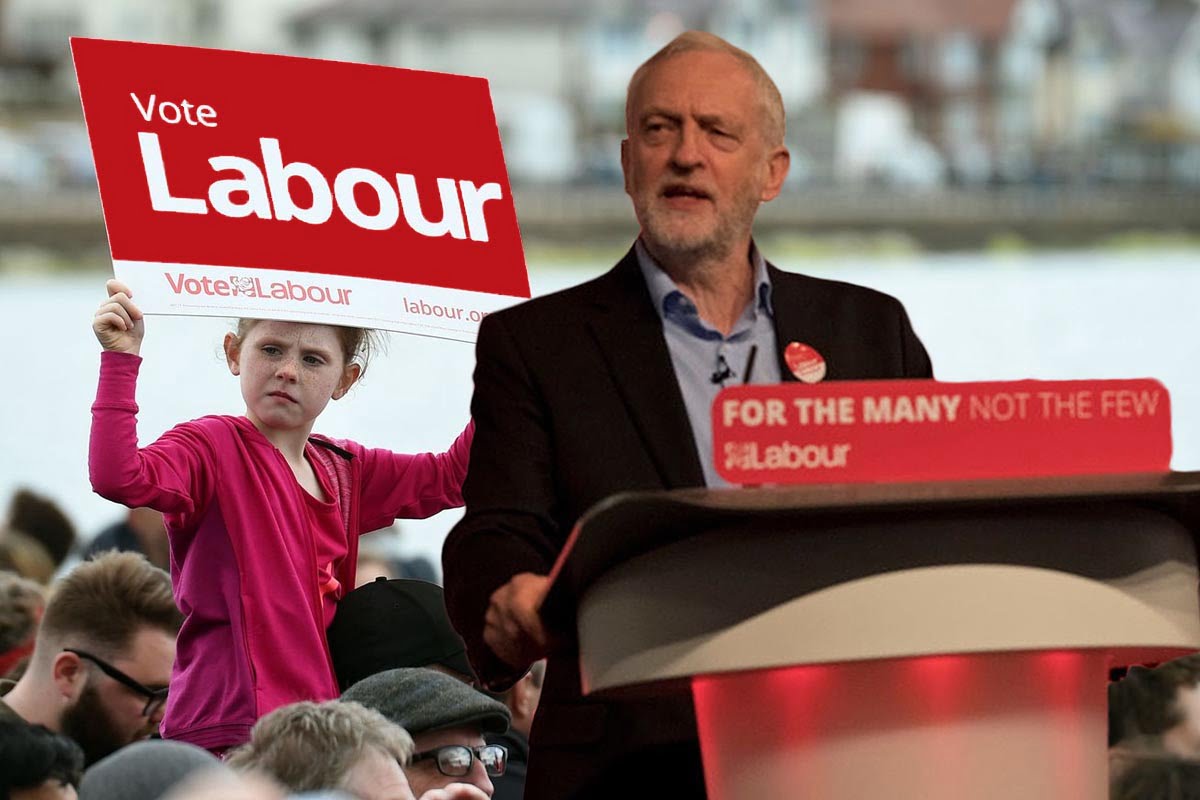 They know Corbyn will be under intense pressure to deal with the desperate problems faced by sections of the working class.
They know Corbyn will be under intense pressure to deal with the desperate problems faced by sections of the working class.
Those at the bottom are being crushed by rising debt and falling wages. In London and other cities, rickets – a product of poverty – has reappeared. Child poverty is on the rise, with 700,000 children living in poverty in London alone. This is set soon to rise to 900,000. 70% of those in poverty are in working households.
The situation is becoming more desperate by the hour. The cuts and austerity have reduced layers to below the poverty line who have to rely on foodbanks to survive. Desperate situations demand desperate measures. People cannot afford to wait.
This will lead to massive pressures on the Corbyn government, which has promised – so far – only to reverse a third of government cuts.
The strategy of the ruling class will be to discredit this government and attempt to bend it to its will. They will revert to extra-parliamentary methods and struggle to bring the government to heel.
We have already seen the open threats of the military tops and generals towards a Corbyn government. Some were prepared to threaten a coup if Corbyn reduced military spending.
While a coup is out of the question under the present class balance of forces, it is an indication of how they would act in the future in defence of Queen and Country. If they were prepared to conspire against the mildly reformist Labour government of Harold Wilson in the 1960s, they would certainly regard a Corbyn government, which they see as ‘Marxist’; as extremely dangerous.
John McDonnell created a stir when he revealed he had asked advisers to draw up scenarios for how to handle sabotage, such as a run on the pound or a strike of capital. Each of the counter-measures to such sabotage, however, is simply framed within the confines of the capitalist system.
But there is no solution to sabotage on a capitalist basis. The capitalists hold the economic power. Only by mobilising the collective power of the working class will it be possible to defeat capitalist sabotage and open the way for the expropriation of the banks and big monopolies.
For the reformist leaders, such an alternative is ‘impractical’ and ‘unrealistic’. However, the ones who are impractical and unrealistic are those who imagine that it is possible to convince the bankers and capitalists to collaborate with a socialist government by means of soothing speeches. It is like trying to persuade a tiger to become a vegan.
The ruling class will be conspiring and plotting from the very beginning against a Corbyn government. They are doing so now. They will be helped by the Blairite wing of the PLP, which will act as a reactionary Fifth Column.
They are very familiar with these ladies and gentlemen. The Blairites are from the same social milieu, went to the same schools and universities, and are often members of the same exclusive clubs. It was no surprise when it came to light that Chuka Umunna was a member of one of these VIP Clubs, with his own £300 cognac locker.
When things eventually come to a split, the right wing will depart with the same ease as a person crossing a room.
The signal can be given by the ruling class through a campaign in the media, setting off a panic to bring down the government. They did this in 1924 with the fake Zinoviev Letter.
This ensuing crisis and panic would provide the ideal setting for the launch of a capitalist Centre party, with the pro-European Tories also splitting to the ‘left’ and joining up. What is left of the Lib-Dems would be absorbed within this, as in the National Government of 1931.
Such a party would be launched under the banner of the ‘National Interest’, seeking to bring the leaders of all parties together for the good of the country (read: British capitalism). The collapse of the Labour government would be followed by a ferocious election campaign, leading to a coalition government of pro-bourgeois parties.
Under such conditions the Labour Party would probably suffer a heavy defeat on the electoral front. But it would not be completely destroyed. In opposition the Labour Party would shift dramatically to the left, further than at any time in its history.
A bourgeois coalition government carrying out a policy of cuts and austerity would not necessarily stay in office for long. It would prepare the ground for an even greater swing to Labour.
Momentum
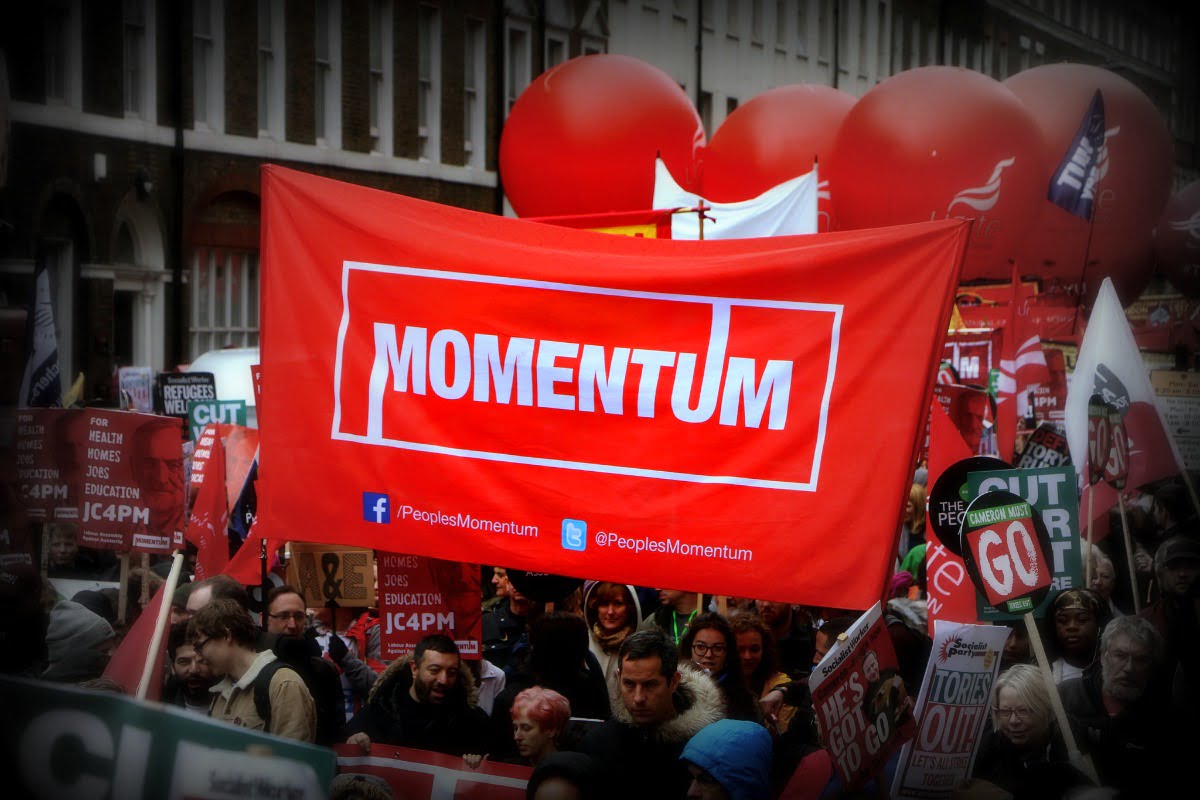 It is self-evident that Momentum, for all its deficiencies and limitations, has now emerged as the organised left, as was evident at the last Labour Party conference. However, under the control of Jon Lansman and his supporters, it has mainly become an election machine for the Corbynistas within the Party and for national or local elections. Its politics are of the soft left variety and it is dominated bureaucratically by the leading (unelected and unaccountable) clique.
It is self-evident that Momentum, for all its deficiencies and limitations, has now emerged as the organised left, as was evident at the last Labour Party conference. However, under the control of Jon Lansman and his supporters, it has mainly become an election machine for the Corbynistas within the Party and for national or local elections. Its politics are of the soft left variety and it is dominated bureaucratically by the leading (unelected and unaccountable) clique.
Momentum’s social media campaigns have been used to great effect to mobilise the ground troops for elections. Rather than a real-life left-wing movement, the present set-up of Momentum suits the needs of the left bureaucracy, as this minimises debate and channels energies to organisational issues devoid of politics.
The left split in Momentum a year ago did not lead to anything. Activists have simply vanished into the CLPs and local Momentum groups, which act independently of the national organisation.
As expected, the leaders of Momentum fear a real fight with the right wing. That is why they oppose mandatory reselection. They believe they can co-exist with the Blairites. Again, this is a reflection of the politics of reformism, which seeks the line of least resistance. But this cannot last. The Blairites regard them as a deadly enemy, as Hattersley made clear. They are regarded as not much different from Militant, “the enemy within”.
If the Momentum leadership really wanted to, they could sweep out the Blairites. But this would mean a civil war, and this is what they wish to avoid.
Nevertheless, Momentum has the wind in their sails. They claim over 35,000 members and a database of 100,000 supporters. They have taken over the NEC and have the political support of the majority of the party membership. They have won control of the Conference Arrangements Committee, which will now give them complete control of the Party conference and over any proposed rule changes. This will force many on the right wing of the party to give up the fight and look to a different career.
The role of the Marxists
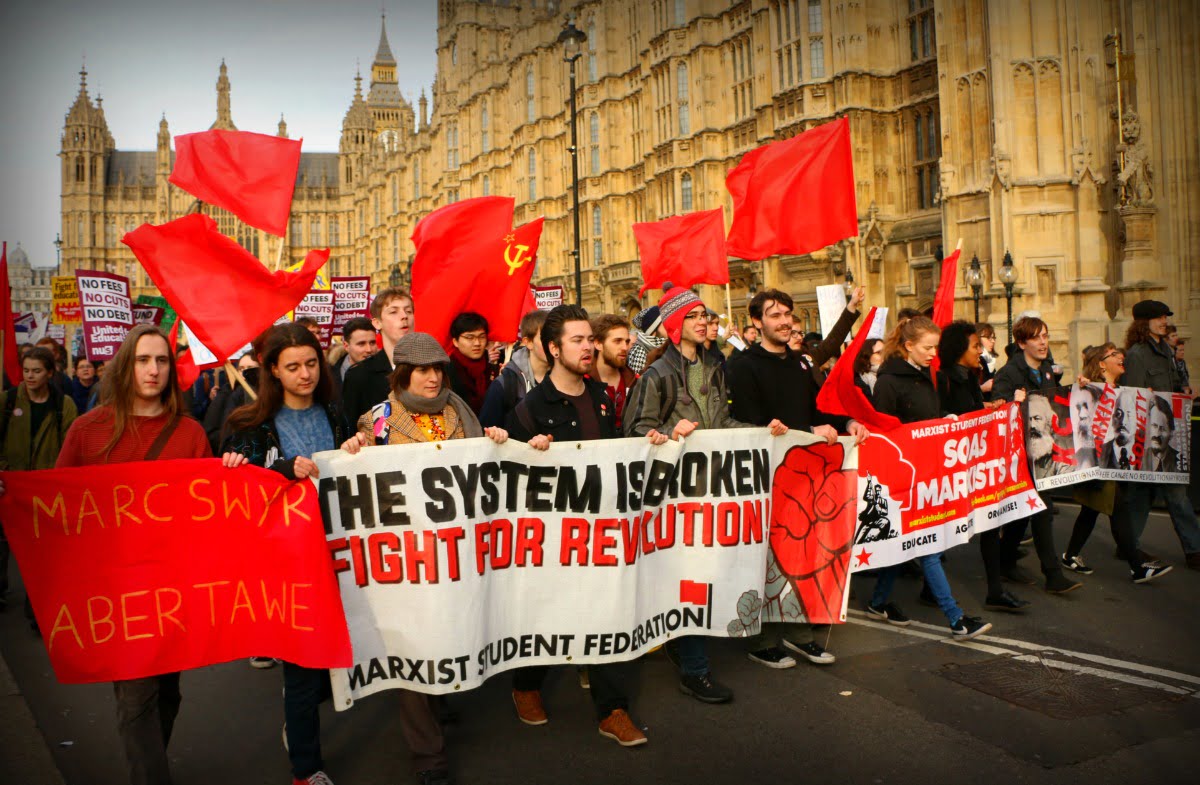 We have entered the most unstable period in history, characterised by unstable coalitions and governments of crisis. At a certain stage in the future, one can envisage the coming to power of a Kerensky-type government in Britain. Under such circumstances, the ruling class will be preparing for a showdown with the working class.
We have entered the most unstable period in history, characterised by unstable coalitions and governments of crisis. At a certain stage in the future, one can envisage the coming to power of a Kerensky-type government in Britain. Under such circumstances, the ruling class will be preparing for a showdown with the working class.
In such conditions a Marxist tendency, if it acted properly, could grow by leaps and bounds on the basis of events. It could comprise an increasingly important tendency within the radicalised left, in effect, forming the organised revolutionary tendency of the left.
In criticising the centrist ILP, Trotsky said that “the ILP had not freed itself by far of all the defects of the left wing of the Labour Party (theoretical vagueness, lack of a clear programme, of revolutionary methods, of a strong organisation)…”
That is a fair description of the confused ideas of many of the self-proclaimed ‘left’ leaders in the Labour Party today. It is this ideological confusion and amorphousness that will destroy them in the end. By contrast, theoretical clarity and ideological firmness is the chief hallmark of the Marxists.
In the turbulent years that lie ahead, there will be a dramatic polarisation both to the left and to the right. The mass organisations will be in ferment, with splits to the right and to the left. Under these conditions there can be massive changes in consciousness in a very short time, especially amongst those new layers entering into struggle.
“The revolutionary situation, however, begins only from the moment that the economic and social premises of a revolution produce a break in the consciousness of society and its different classes,” explained Trotsky.
Sharp and sudden changes are implicit in the whole situation. We must be prepared for these.
A revolutionary tendency must use every avenue at its disposal to explain its ideas, including the parliamentary field. Trotsky explained the importance of such a platform for Marxist ideas and propaganda.
“It would be particularly wrong to ignore or minimise the importance of parliamentary work. Of course, parliament cannot transform capitalism into socialism or improve the conditions of the proletariat in rotting capitalist society. But revolutionary work in parliament and in connection with parliament, especially in Britain, can be of great help in training and educating the masses.”
This is particularly true in Britain today, where the working class has gone through a very long period of bourgeois democracy and parliamentarism. It will have to go through the school of parliamentarism again in order to learn the necessary lessons from its own experience.
In 1935, Trotsky wrote:
Far-reaching social reforms cannot be carried out amid the conditions of crumbling capitalism. The workers would be more and more insistent in demanding more determined measures from the [Labour] government.
In the parliamentary section of the Labour Party the revolutionary wing would split off, the right wing would be drawn more and more openly to a capitulation on the MacDonald pattern.
As a counterweight to the Labour government and a safeguard against revolutionary action by the masses, big capital would set about energetically supporting (this it has already begun to do) the fascist movement.
The Crown, the House of Lords, the bourgeois minority in the House of Commons, the bureaucracy, the military and naval commands, the banks, the trusts, the main body of the press, would merge into a counter-revolutionary bloc, ever ready to bring up the bands of Mosley or of some other more efficient adventurer to help the regular armed forces.
(Trotsky, Introduction to the Second English Edition of Terrorism and Communism, in Writings on Britain Vol III)
Unlike in the 1930s, the forces of fascism today have been reduced to squabbling sects with no roots in society. Even the xenophobic UKIP has been reduced to a rump. The ultra-left sectarians who are always shouting about the alleged threat from fascism have no sense of proportion or perspective. Serious reaction can only arise after a series of serious and decisive defeats of the working class movement. But we are a long way from that.
At the time, Trotsky tried to give the small group of British Trotskyists a vision of what was possible, provided they were dedicated, energetic and connected with the real movement of the working class. In his advice to the ILP in 1933, Trotsky explained that:
“The revolutionary proletarian party must be welded together by a clear understanding of its historic tasks. This presupposes a scientifically based programme. At the same time, the revolutionary party must know how to establish correct relations with the class. This presupposes a policy of revolutionary realism, equally removed from opportunistic vagueness and sectarian aloofness.”
The excellent advice that Trotsky gave to the British Trotskyists in the past was wasted because of sectarian stupidity.
We must of course have a sense of proportion. The Marxists in Britain are not yet a revolutionary party – only the embryo of such a party. First and foremost we are ideas, programme, perspectives and methods. We are still assembling the initial cadres. But that is only half the battle. It is necessary now to link our relatively small forces to the mass movement of the working class.
That is the greatest challenge facing us. There is no one else who will do it. We must do it ourselves. If we fight with energy, enthusiasm, and elan, we will build a powerful Marxist tendency in Britain.

